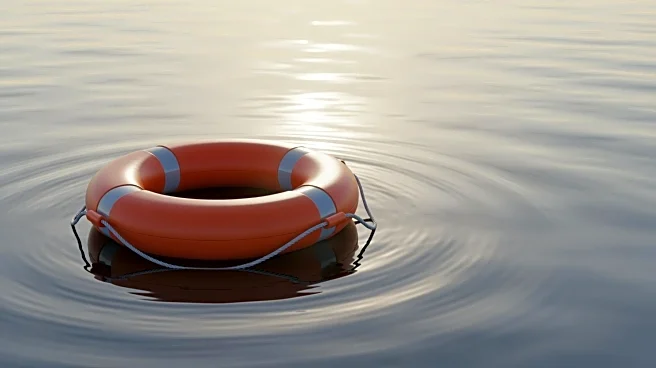What's Happening?
Malaysian authorities are conducting search operations in the Andaman Sea for missing Rohingya migrants after a boat capsized last week. The tragedy has resulted in at least 21 confirmed deaths, with bodies found in both Malaysia and Thailand. The Rohingya,
fleeing violence and poor conditions in Myanmar and Bangladesh, often undertake perilous sea journeys. The Malaysian maritime agency is continuing search efforts despite challenging weather conditions, with hopes that survivors may be holding onto floating objects.
Why It's Important?
The incident highlights the ongoing humanitarian crisis faced by the Rohingya, who are subjected to persecution in Myanmar and dire conditions in refugee camps in Bangladesh. The tragedy underscores the risks associated with their attempts to seek refuge in countries like Malaysia, which does not recognize refugee status. The situation calls attention to the need for international intervention and support to address the root causes of the Rohingya's plight and improve conditions in refugee camps.
What's Next?
Malaysia and Thailand are expected to continue their search operations, with potential diplomatic discussions on handling future refugee movements. The international community may face pressure to provide more support to Rohingya refugees and address the political and humanitarian issues in Myanmar and Bangladesh. There may also be calls for Malaysia to reconsider its stance on refugee recognition and provide more humane treatment to those seeking asylum.
Beyond the Headlines
The tragedy raises ethical questions about the responsibilities of neighboring countries and the international community in protecting vulnerable populations. It also highlights the broader issue of migration and refugee crises, which are exacerbated by political instability and human rights violations. The situation may prompt discussions on global refugee policies and the need for comprehensive solutions to address displacement and migration.
















